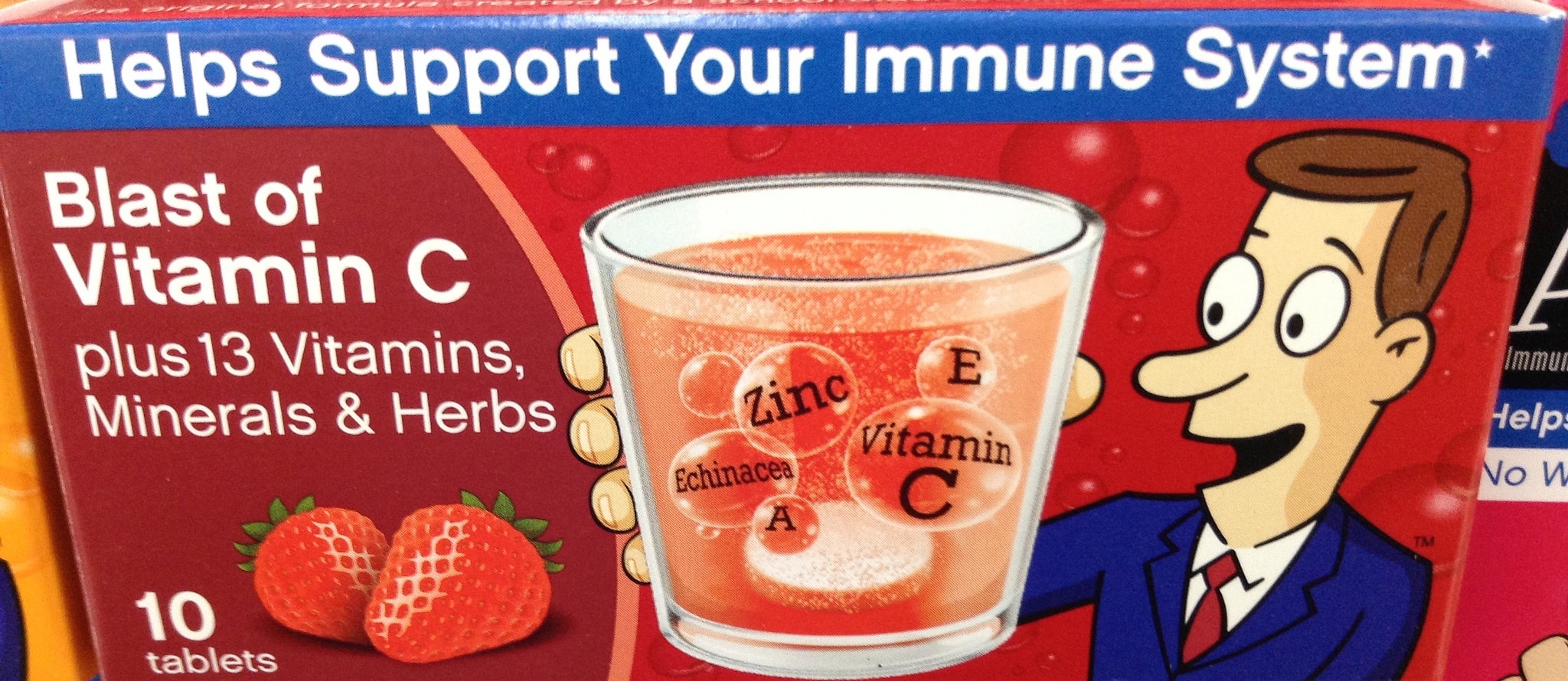In my video Treating Asthma With Fruits and Vegetables, I highlighted a landmark study on manipulating antioxidant intake in asthma. The study found that just a few extra fruits and vegetables a day can powerfully reduce asthma exacerbation rates. If the antioxidants in the plants are ameliorating asthma, then why can’t we take antioxidant pills instead? Because antioxidant pills don’t appear to work.
Studies using antioxidant supplements on respiratory or allergic diseases have mostly shown no beneficial effects. This discrepancy between data relating to fruit and vegetable intake compared with those using antioxidant supplements may indicate the importance of the whole food, rather than individual components. For example, in the Harvard Nurse’s Health Study, women who got the most vitamin E from their diet appeared to be at half the risk for asthma, (which may help explain why nut consumption is associated with significantly lower rates of wheezing), but vitamin E supplements did not appear to help.
Men who eat a lot of apples appear to have superior lung function, as do kids who eat fresh fruit every day, as measured by FEV1 (basically how much air you can forcibly blow out in one second). The more fruit, salad, and green vegetables kids ate, the greater their lung function appeared.
Researchers are “cautious about concluding which nutrient might be responsible.” There’s vitamin C in fruits, salads, and green vegetables, but there are lots of other antioxidants, such as “vitamin P,” a term used to describe polyphenol phytonutrients found in grapes, flax seeds, beans, berries, broccoli, apples, citrus, herbs, tea, and soy. Polyphenol phytonutrients can directly bind to allergenic proteins and render them hypoallergenic, allowing them to slip under our body’s radar. If this first line of defense fails, polyphenols can also inhibit the activation of the allergic response and prevent the ensuing inflammation, and so may not only work for prevention, but for treatment as well.
Most of the available evidence is weak, though, in terms of using supplements containing isolated phytonutrients to treat allergic diseases. We could just give people fruits and vegetables to eat, but then we couldn’t perform a double-blind study to see if they work better than placebo. Some researchers decided to use pills containing plant food extracts. Plant extracts are kind of a middle ground. They are better than isolated plant chemicals, but are not as complete as whole foods. Still, since we can’t put whole foods in a capsule, we can compare the extracts to fake sugar pills that look and feel the same to see if they have an effect.
The first trial involved giving people extracts of apple skins. I’ve talked about the Japan’s big cedar allergy problem before (See Alkylphenol Endocrine Disruptors and Allergies), so apple extract pills were given every day for a few months starting right before pollen season started. The results were pretty disappointing. They found maybe a little less sneezing, but the extract didn’t seem to help their stuffy noses or itchy eyes.
What about a tomato extract? A randomized, double-blind, placebo-controlled eight-week trial was performed on perennial allergic rhinitis, this time not for seasonal pollen, but for year-round allergies to things like dust-mites. There are lots of drugs out there, but you may have to take them every day year-round, so how about some tomato pills instead? After oral administration of tomato extract for eight weeks, there was a significant improvement of total nasal symptom scores, combined sneezing, runny nose and nasal obstruction, with no apparent adverse effects.
Would whole tomatoes work even better? If only researchers would design an experiment directly comparing phytonutrient supplements to actual fruits and vegetables head-to-head against asthma, but such a study had never been done… until now. The same amazing study, highlighted in my video, Treating Asthma with Plants vs. Supplements?, that compared the seven-fruit-and-vegetables-a-day diet to the three-fruit-and-vegetables-a-day diet, after completion of its first phase, commenced a parallel, randomized, controlled supplementation trial with capsules of tomato extract, which boosted the power of five tomatoes in one little pill, and the study subjects were given three pills a day.
Who did better, the group that ate seven servings of actual fruits and vegetables a day, or the group that ate three servings a day but also took 15 supposed serving equivalents in pill form? The pills didn’t help at all. Improvements in lung function and asthma control were evident only after increased fruit and vegetable intake, which suggests that whole-food interventions are most effective. Both the supplements and increased fruit and vegetable intake were effective methods for increasing carotenoid concentrations in the bloodstream, but who cares? Clinical improvements—getting better from disease—were evident only as a result of an increase in plant, not pill, consumption. The results provide further evidence that whole-food approaches should be used to achieve maximum efficacy of antioxidant interventions.
And if this is what a few more plants can do, what might a whole diet composed of plants accomplish? See Treating Asthma and Eczema with Plant-Based Diets.
I also dealt with preventing asthma in the first place: Preventing Asthma With Fruits and Vegetables.
The theme of whole foods being more efficacious than supplements seems to come up over and over again. See for example:
- Produce, Not Pills to Increase Physical Attractiveness
- Dietary Treatments for Computer Eye Strain
- Some Dietary Supplements May Be More Than a Waste of Money
- Prunes vs. Metamucil vs. Vegan Diet
- Optimal Phytosterol Source
More on “vitamin P” in How to Slow Brain Aging by Two Years.
The anti-inflammatory effects of nuts may explain the Harvard Nurse’s Health Study finding: Fighting Inflammation in a Nut Shell.
-Michael Greger, M.D.
PS: If you haven’t yet, you can subscribe to my videos for free by clicking here and watch my full 2012 – 2015 presentations Uprooting the Leading Causes of Death, More than an Apple a Day, From Table to Able, and Food as Medicine.
